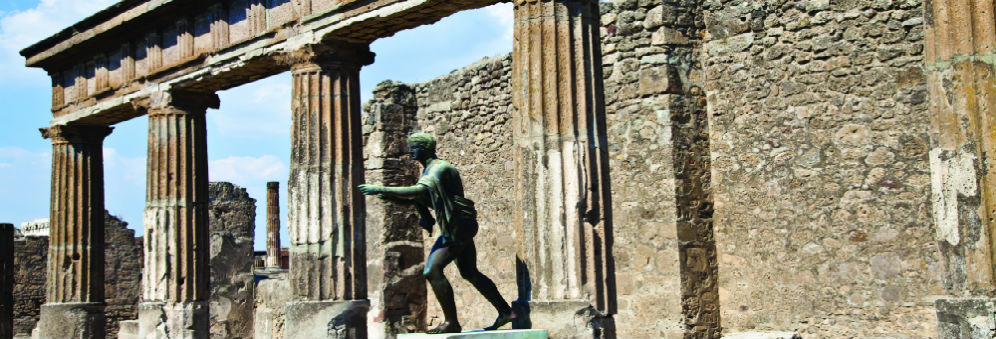Thucydides — still relevant today?
Thucydides, the ancient Greek historian of the Peloponnesian War between Sparta and Athens, has long been considered the father of both scientific history and political realism. But how extensive is his influence on the modern world?
In 2004, Professor Neville Morley from the Department of Classics and Ancient History came across a remark by the German philosopher Friedrich Nietzsche:
"Thucydides and, perhaps, Machiavelli's Prince are my close kindred because of their absolute determination to pre-judge nothing and to see reason in reality; not in 'reason', still less in 'morality'."
This comment, and the question of how far it was completely original, rekindled Neville's long-standing interest in the Greek writer. He obtained funding from the Arts and Humanities Research Council (AHRC) for a series of workshops to bring together academics from different disciplines to share their research about Thucydides, which then led to a four-year AHRC-funded project exploring Thucydides' impact on modern thought: Thucydides: Reception, Reinterpretation and Influence.
Reinterpretation of Thucydides' works
The reception of Thucydides focuses on the question of who was reading Thucydides and what exactly they were reading. Reinterpretation is about the way that Thucydides was understood as a writer and an authority. To historians, for example, he is a vital source for ancient Greek history, but has also been seen as a model for history-writing in general; to political theorists, however, he is a pioneering political theorist, and the originator of 'realist' approaches to understanding political life. The final project theme then considers Thucydides' influence on the modern world, the impact of these different conceptions of his work in fields such as International Relations and military education.
A ground-breaking interdisciplinary project
The project compared the place of Thucydides in different disciplinary and national traditions through time, and is explicitly interdisciplinary. Andreas Stradis, one of two PhD students attached to the project, researched the importance of Thucydides in modern military education in the USA. Ben Earley, the other, explored his role in historical and political debates at the time of the French Revolution. Christine Lee, Neville's co-researcher, comes from a political theory background and focused on the ways that Thucydides is read within modern democratic and anti-democratic thought, while Neville himself is interested not only in the historiographical tradition but in the place of Thucydides in modern culture more broadly, such as the works of the Austrian writer Peter Handke.
"Looking at what Thucydides has meant in different places and at different points in time, and the comparison between historical and political perspectives, is fascinating. For me, this has led to a much deeper understanding of the modern legacy of Greek political thought in general, as well as the relation between different disciplines and ways of viewing the world" – Professor Neville Morley.
By the end of its four years, the had project delivered a number of ground-breaking publications, including a multi-author Handbook to the Reception of Thucydides, a monograph on Thucydides and the Idea of History and a range of journal articles and conference papers. It included workshops in Bristol and in the USA, and a prestigious international conference in Bristol at the end of June 2012. The project team also shared their findings more widely with a number of public events and media work, not least because of the surprising contemporary relevance of the subject.
"Thucydides has been by far the most prominent and significant classical influence on contemporary political debates, particularly regarding international relations and democracy. He was widely cited, especially in the USA, around the first Gulf War and after 9/11, and, with more recent tensions in the Middle East, has come to the fore once again. We need to understand how and why he appears as such an authority in the modern world" – Professor Morley.
Related research groups
Related publications
 Study Classics and Ancient History
Study Classics and Ancient History
Join one of Bristol's oldest – yet most innovative – departments.
